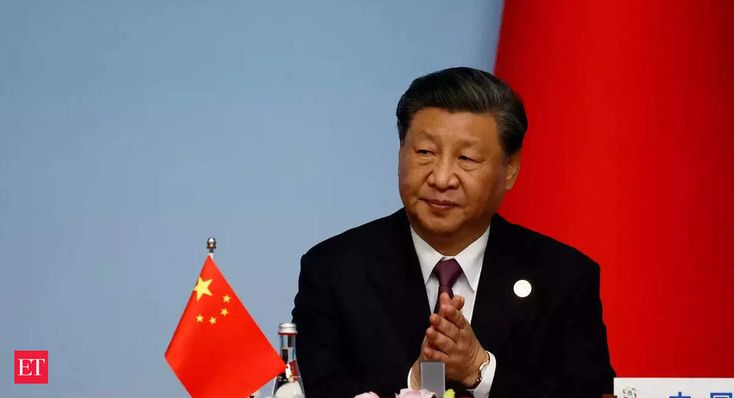In a break from tradition, Chinese President Xi Jinping delivered a significant speech during a dinner reception on the eve of China’s 74th National Day. This event, typically addressed by the premier, saw President Xi calling for national unity and collaboration. This marked the third time Xi had personally delivered this speech, a role usually reserved for the premier. The move has raised eyebrows amid recent political shifts in China’s leadership, including the unexplained disappearances of cabinet ministers and military commanders, leading to speculations of political purges and potential impacts on policymaking and international relations.
Since taking office as president in March 2013, President Xi Jinping has addressed the nation during the annual reception dinner on two previous occasions. Typically held on the eve of China’s National Day on October 1st, the event gathers dignitaries and diplomats at the Great Hall of the People in Beijing. In other years, the speech was delivered by the premier, making Xi’s involvement in this address unusual.
The first instance of Xi delivering this speech was in 2014, a significant year with over 3,000 attendees, far surpassing the usual 1,200 guests. In 2019, Xi once again took the podium during the reception, which celebrated the 70th anniversary of the People’s Republic of China.
However, this year’s address on September 28th marked President Xi’s third participation in this role. During his speech, he emphasized the challenges ahead, stating, “Our future is bright, but the road ahead will not be smooth.” His audience of approximately 800 included foreign diplomats, adding to the significance of his address.
Xi’s increased involvement in this event comes at a time of notable changes within China’s political landscape. The sudden and unexplained disappearances of two cabinet ministers and top military commanders have triggered discussions among diplomats and scholars about potential political purges. These developments, occurring at the outset of Xi’s unprecedented third term as president in 2023, have raised questions about their implications for policymaking and the nation’s engagement with foreign governments.
The deviation from the established protocol has left many observers curious about the motivations behind this shift. President Xi’s National Day speech indicates a desire for greater involvement in shaping China’s future and promoting unity among the nation’s diverse population. As China navigates its path on the global stage, these changes at the highest levels of government will undoubtedly have repercussions both domestically and internationally.
While the specifics of the recent leadership changes remain shrouded in secrecy, the uncertainty they bring could potentially impact the nation’s approach to foreign policy and engagement. As China’s influence continues to grow, the world watches closely, seeking insights into the direction the nation will take under President Xi’s leadership.
In conclusion, President Xi Jinping’s unusual delivery of the National Day speech at a dinner reception highlights a departure from tradition and raises questions about the evolving political landscape in China. As the nation celebrates its 74th anniversary, President Xi’s call for unity and his increased role in addressing the nation carry significant implications, both domestically and on the world stage. Observers will continue to monitor developments in China’s leadership and their impact on policymaking and international relations.


